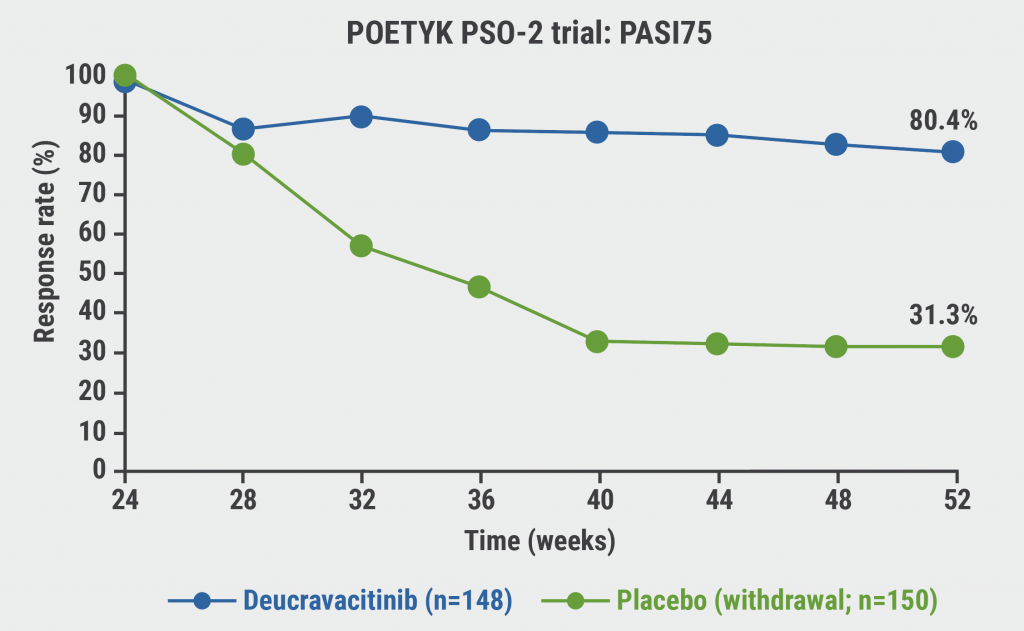Although HS is not primarily an infectious disease, bacteria contribute to the inflammatory drive [1]. The microbiome of healthy skin and HS is different and bacterial biofilms possibly play a role in chronic HS [1-3]. Various guidelines suggest antibiotics in mild-to-moderate HS and also for acute lesions of all stages [1,4, 5]. Currently, clindamycin 1% is the only recommended topical therapy for mild disease as it demonstrated benefit over placebo [1,4,6]. Oral antibiotics should be given for Hurley stages 2 and 3 and non-responders to topical antibiotics [1]. Approved agents for monotherapy are tetracycline, minocycline, and the most commonly prescribed doxycycline [1,5]. Combination therapy is recommended with clindamycin plus rifampicin [1].
Concerns for antibiotic therapy include substantial resistance rates, overuse or arbitrary treatment duration, adverse events influencing compliance, and lack of randomised controlled trials [1,7]. “The future management of HS will probably be moving from antibiotic therapy to a more personalised treatment and immunotherapy,” was the opinion of Dr Vekic.
- Vekic DA. 24th World Congress of Dermatology, 10-15 June 2019, Milan, Italy.
- Stoodley P. Br J Dermatol 2017;176:855-856.
- Ring HC, et al. Br J Dermatol 2017;176:993-1000.
- Zouboulis CC, et al. J Eur Acad Dermatol Venereol. 2015;29: 619-44.
- Vekic DA, et al. Australas J Dermatol 2018;59:261-266.
- Alikhan A, et al. J Am Acad Dermatol. 2019;81:91-101.
- Woodruff CM, et al. Mayo Clin Proc. 2015;90:1679-93.
Posted on
Previous Article
« Treating keloids with lasers Next Article
Novel treatment options in alopecia areata and vitiligo »
« Treating keloids with lasers Next Article
Novel treatment options in alopecia areata and vitiligo »
Table of Contents: WCD 2019
Featured articles
Letter from the Editor
Insights into pathogenesis of AD define novel therapeutic targets
Treating Psoriasis in 2019
Choosing the right biologic in psoriasis
Registries – an important research tool in biologics
Atopic Dermatitis – What is New
Insights into pathogenesis of AD define novel therapeutic targets
Combinations are hot in AD treatment
Dermal Reactions to Systemic Drugs
Cutaneous adverse events due to EGFR inhibitors
Management strategies for drug-induced mucositis
Skin toxicity of immune checkpoint inhibitors
Lupus Erythematosus Today
New targets and biologics for cutaneous lupus erythematosus
Novel lupus classification will aid future research
Hidradenitis Suppurativa
Various guidelines with much overlap
Antibiotics in hidradenitis suppurativa
Biologicals beyond TNF blockade
Small Molecules – What to Expect
Novel treatment options for many dermatologic indications
Long awaited oral therapy for moderate-to-severe AD
Novel treatment options in alopecia areata and vitiligo
Optimising the Management of Keloids
Keloids: a faulty switch in wound healing?
What the future of keloid treatment could hold
Malignant Melanoma – Advances in Management
Will malignant melanoma become a curable disease?
Best of the Posters
Related Articles
April 19, 2019
Plaque psoriasis – Efficacy of guselkumab

August 26, 2022
Systemic treatment for psoriasis: what is on the horizon?
© 2024 Medicom Medical Publishers. All rights reserved. Terms and Conditions | Privacy Policy

